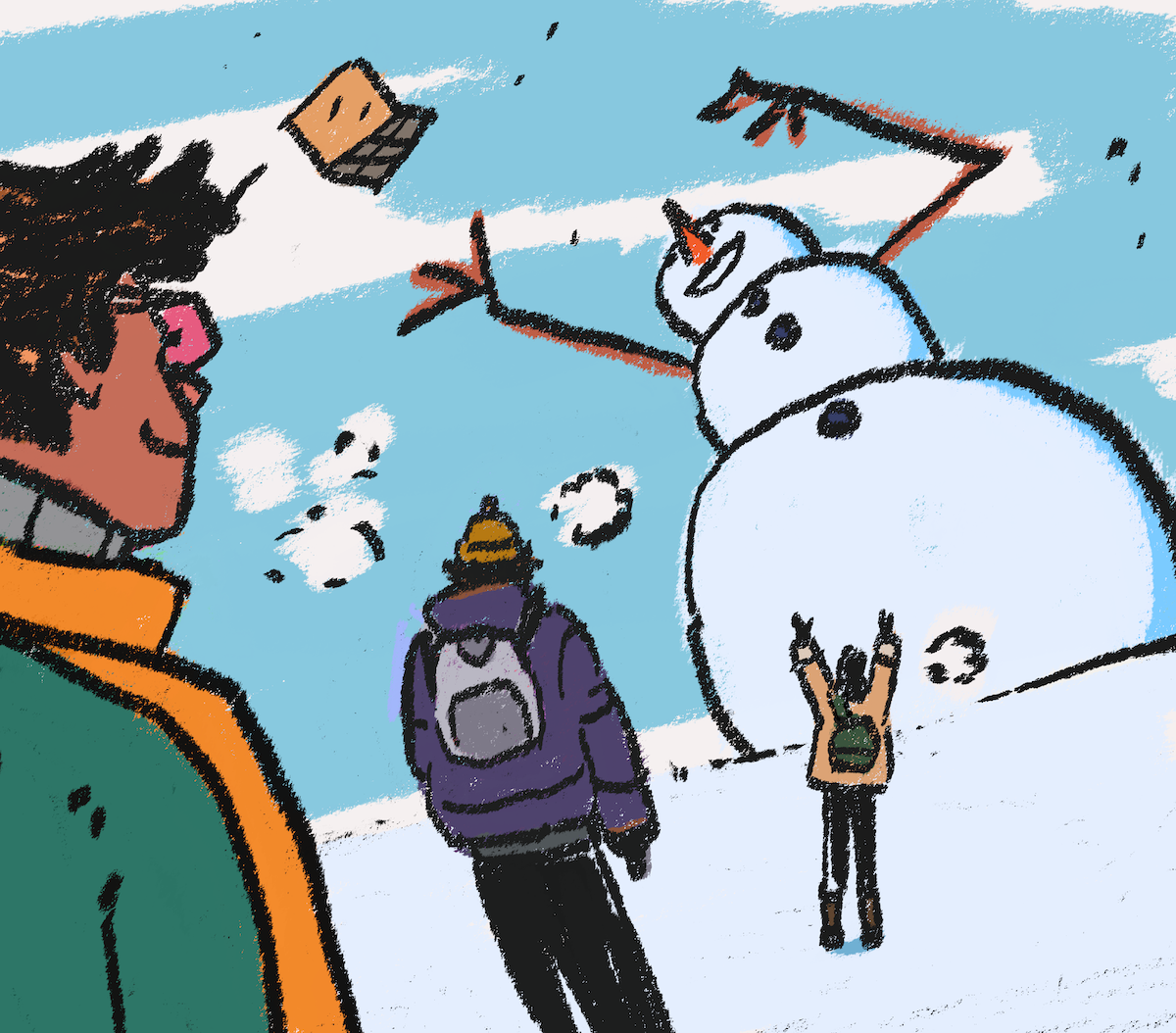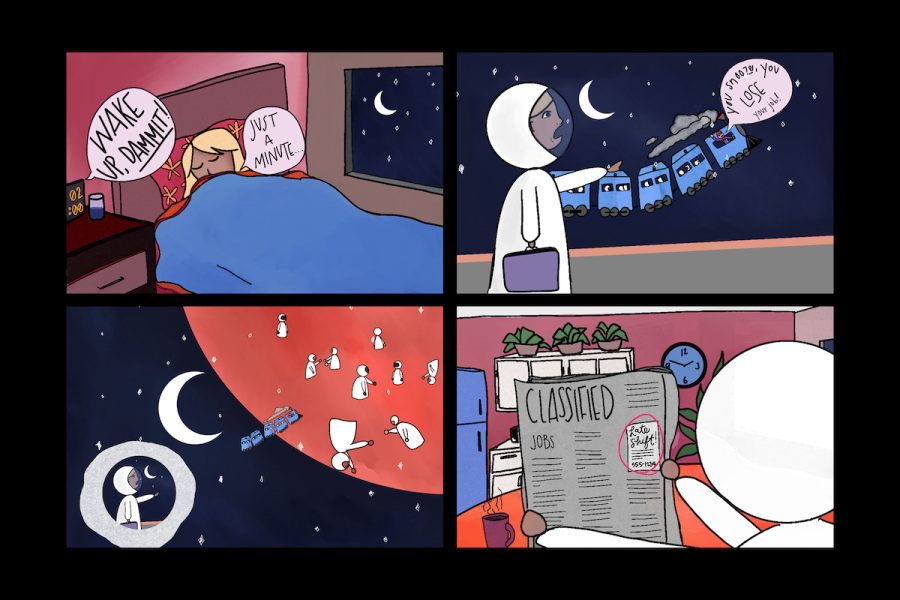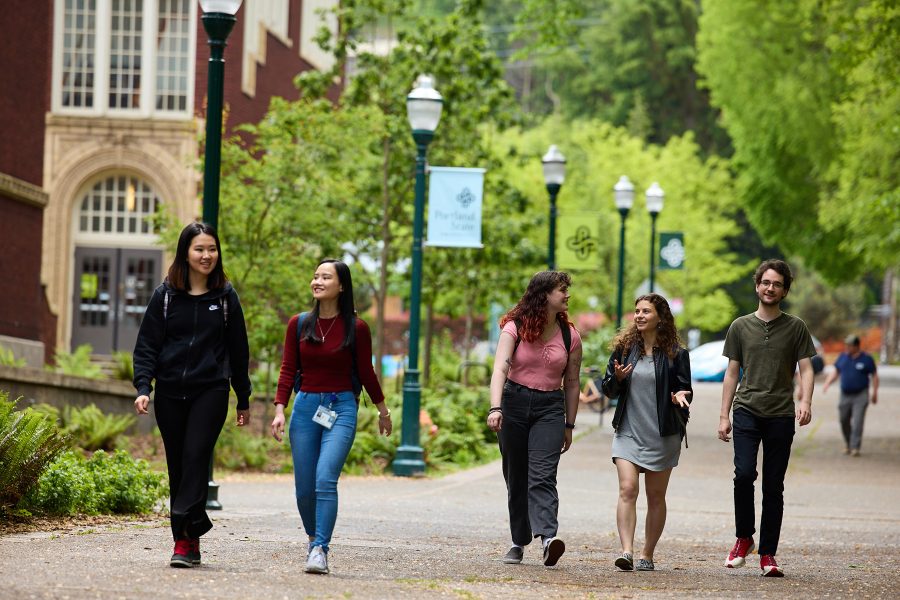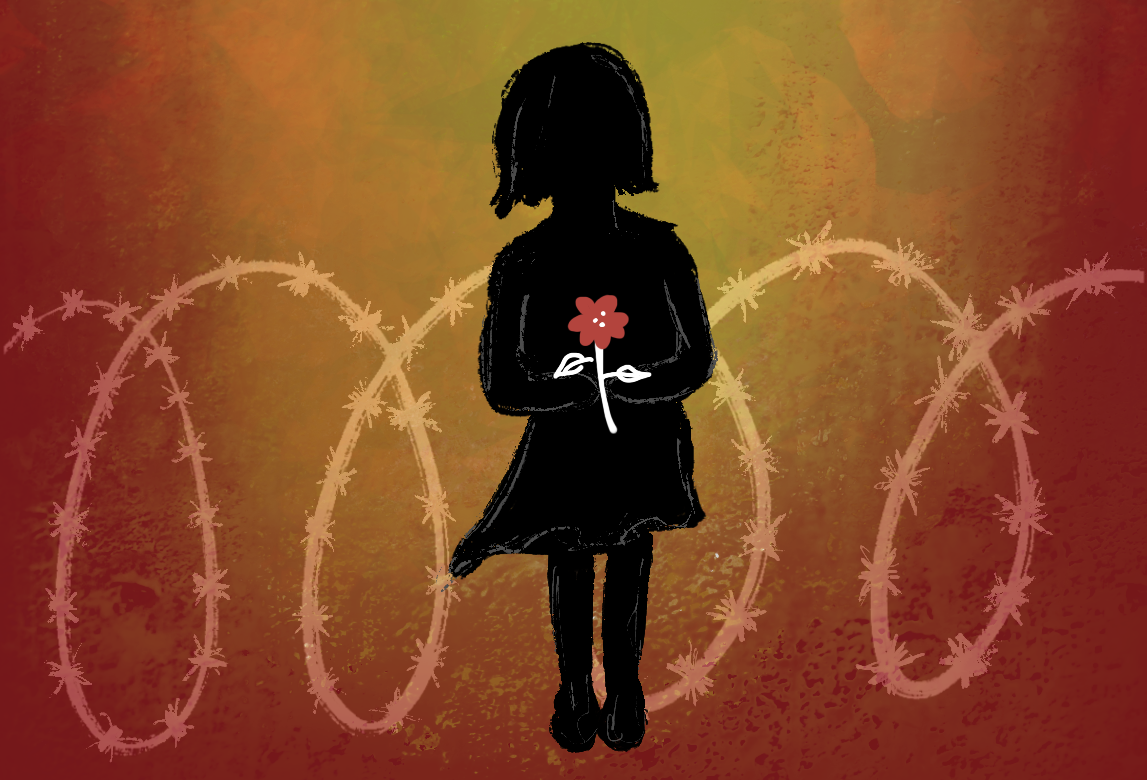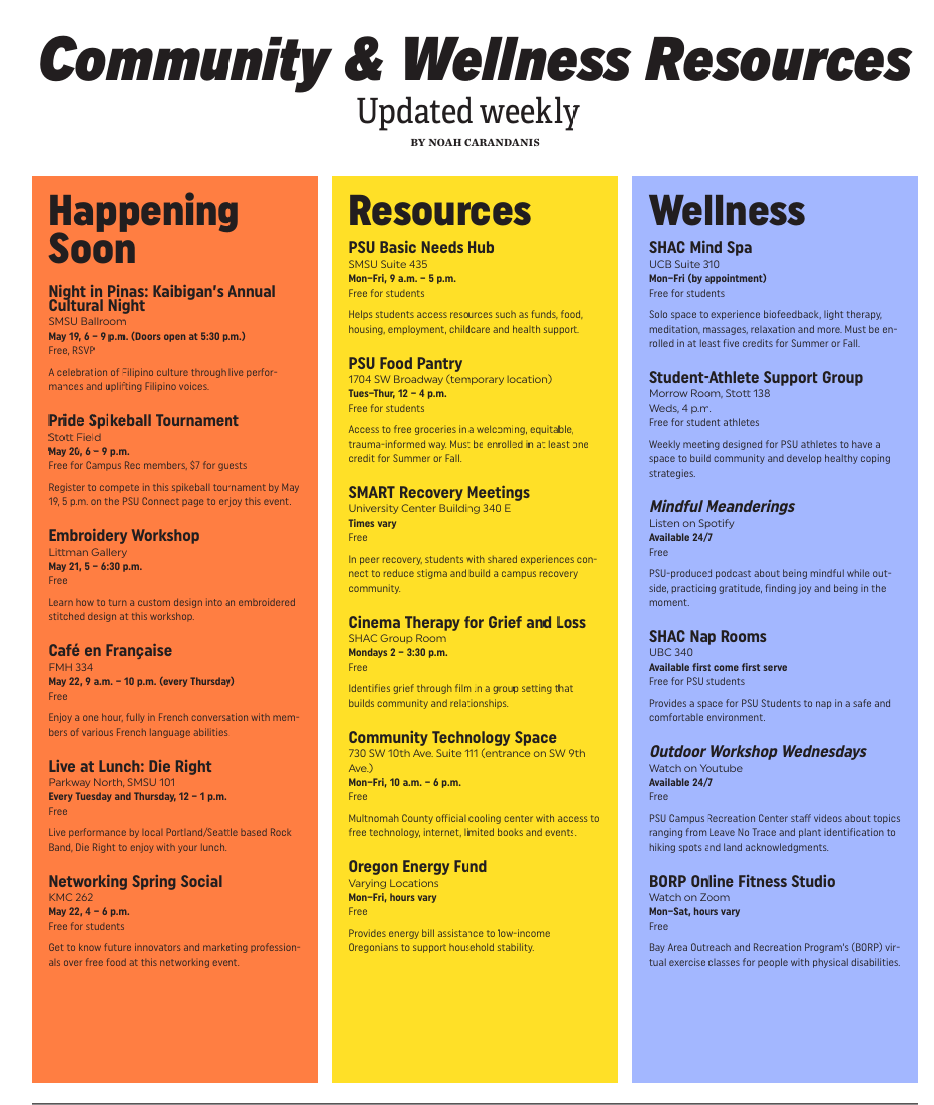Last Wednesday, Portland braved a historic snowstorm with a 10.8 inch snowfall that broke the daily and monthly record, according to the Portland climate book published by the National Weather Service’s Portland office. Portlanders confronted perilous icy roads; fallen phone lines and trees; and power outages that caused widespread closures of businesses, public transit and schools. In response, Portland State enacted a campus closure from Feb. 22–24—during which, per PSU’s inclement weather policy, classes “held on the PSU campus” were canceled while online classes carried on via Zoom and Canvas.
In a post-2020 world, the separation between our lives at home and our lives at work or school has become blurred. The COVID-19 pandemic required us to establish structures to continue on with our obligations and learn and work from anywhere. But must we always embrace the constant connectivity of the digital world, even when it comes to the rare and precious Portland snow day? PSU should maintain traditional snow days and cancel classes—online as well as in-person—when physical buildings are shut down.
To start, in-person instruction and Zoom courses do not offer equal educational value. One study from the Annenberg Institute at Brown University shows there is a significant correlation between extended online learning and negative outcomes in course persistence and grades. The study’s authors found that “the shift to virtual instruction [in Spring 2020] resulted in a 6.7 percentage point decrease in course completion, driven by increases in both course withdrawal and failure.” This evidence suggests that virtual learning is not an effective substitute for traditional classes. Not to mention, in the case of snow days, the classes were not developed with an online setting in mind.
In one of my virtual-adapted classes last week, our professor had intended for our class to participate in an activity that required us to physically be together in the same space. Instead, we met on Zoom for an impromptu discussion and ended class early. It was an all-too-familiar experience as a student who was in school during the lockdown days of fully online learning: the sea of turned-off cameras, the breakout rooms that fell silent after a minute of half-hearted conversation, the palpable lack of motivation of all parties involved. It reminded me that virtual classes come with an inherent sense of isolation and disconnection from one’s learning community that make it challenging to really engage with peers and professors or focus on the course at hand.
This impaired focus is only exacerbated for students with children of their own. Many PSU students rely on our on-campus daycare services—without access to childcare, they’re forced to juggle their school day with parenting. The result is an impeded capacity to do either job well—that of a parent or a student.
The Portland Public Schools’ (PPS) policy for the 2022–2023 school year is to maintain traditional snow days, meaning when facilities are closed due to weather, students and educators are not expected to learn or work remotely. PPS adopted this policy after experiencing challenges in holding successful inclement weather remote learning days last year, citing the limited opportunities to have the advance notice necessary to execute meaningful virtual learning. This challenge is not specific to K–12 schooling, and universities like PSU would be wise to update their inclement weather policies to reflect this reality.
Online classes during snow days create additional disparities for people with limited access to technology or irregular internet access. According to a Pew Research Center survey, 13% of adults at the lowest income level don’t have access to broadband services or a desktop or laptop computer. PSU has a significant population of students who fall under this category, as 25.4% of students have experienced basic need insecurity—housing or food insecurity and/or homelessness. For these individuals, attending virtual classes may not be an option.
The final and perhaps most overlooked argument for maintaining traditional snow days is simply for the sake of preserving a beloved tradition. Snow days in Portland are a rare but often much-needed opportunity to slow down and take a break when the natural world encourages us to do so. The modern age requires us to constantly remain plugged into an increasingly digital world that takes a toll on our mental health. We should lean in when nature offers us a moment to disconnect and appreciate its wonder, whether that’s through making snow angels or meeting neighbors shoveling out on the street. The benefits of stepping away from the relentless grind of student life once or twice a year far outweigh the last minute switch to thrown-together and inaccessible virtual classes.

